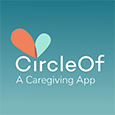As the weather improves and spring flowers begin to bloom, Hoosiers are ready to spend time outdoors. When planning an outdoor adventure, it's important to be mindful of your personal health risk factors. People with heart disease who dream of vacationing or hiking to a high-altitude destination can make the trip safely with a balance of safety and fun.
The Sky Is the Limit, Literally
According to a paper published in Travel Medicine and Infectious Disease, people with heart conditions can travel to areas of high elevation. Our cardiovascular experts agree.
"Most cardiac patients – except those who are short of breath at rest or at minimal exertion - should be able to travel to a high altitude safely," said Dr. Sandeep Dube, cardiologist at Community Physician Network. "While most of these trips are going to be for sightseeing and not actual hiking, they should consult with their cardiologist before embarking on such a trip."
Dr. Dube knows a thing or two about high altitude and heart disease. Not only has the cardiologist climbed Mt. Kilimanjaro (the world's second tallest mountain), but also prepared one of his patients - a heart attack survivor - for the climb.
High-altitude locations generally measure at least 8,200 feet above sea level. At that elevation, the atmosphere contains less oxygen, and the heart and lungs must adapt to supply the body with enough of the gas. This is why altitudes are often avoided by those who suffer from heart disease.
However, with the right training regimen, guidelines and physician oversight, it is possible.
When in Doubt, Check with Your Cardiovascular Team
People with heart conditions should seek medical advice from a doctor knowledgeable about altitude medicine, bring extra doses of regular medications, and return to a lower altitude should they start having warning signs such as chest pain or shortness of breath.
For more information about heart disease or cardiovascular care at Community, visit eCommunity.com/heart.

Try the CircleOf app to help you and your family manage your heart disease diagnosis. The CircleOf app has resources, tools and community for caregivers. Download the app to manage a trusted circle of care.

